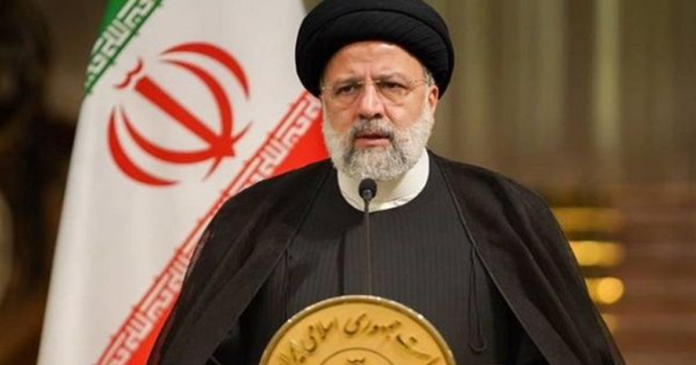Ebrahim Raisi, the president of Iran, called any efforts by nearby nations to normalise ties with its longtime foe Israel “reactionary and regressive” on Sunday.
Iran slams normalisation with Israel: The comments were made while formal relations between Israel and Saudi Arabia are under negotiation with US mediation. On Friday, the US announced that the two nations are approaching the outline of a deal.
During an international Islamic conference held in Tehran, Raisi stated, “Normalising relations with the Zionist regime is a reactionary and regressive move by any government in the Islamic world.”
Following an Israeli minister’s first official trip to the country, a group from Israel is schedule to arrive in Saudi Arabia on Sunday.
In an effort to reassure the Palestinians in advance of the potential agreement, Saudi Arabia also dispatched a delegation to the occupied West Bank on Wednesday for the first time in thirty years.
Raisi went on to say on Sunday that any attempt at normalisation was the “desire of the foreigners” and that there was no room for “surrender or compromise” with reference to Israel.
Emphasizing their belief that Jerusalem must be “liberate,” he reiterate Iran’s stance. He added that “the only option for all the fighters in the occupied land and the Islamic world is to resist and stand against the enemies.”
East Jerusalem, which the Palestinians want to be the future capital of their imagined state, was occupied by Israel in 1967 and then annexed.
“Recent Developments in Middle East Diplomacy: Prospects for Israel-Saudi Arabia Relations”
Following the Abraham Accords, which the US mediated and resulted in Israel establishing diplomatic relations with three Arab nations in 2020, a deal between Israel and Saudi Arabia would be the next step.
Raisi stated last month that any “relationships between regional countries and the Zionist regime would be a stab in the back of the Palestinians” on the fringes of the UN General Assembly.
In March, China mediated a deal, announcing the restoration of relations between two regional powerhouses, Iran and Saudi Arabia, which had been severe since 2016.

